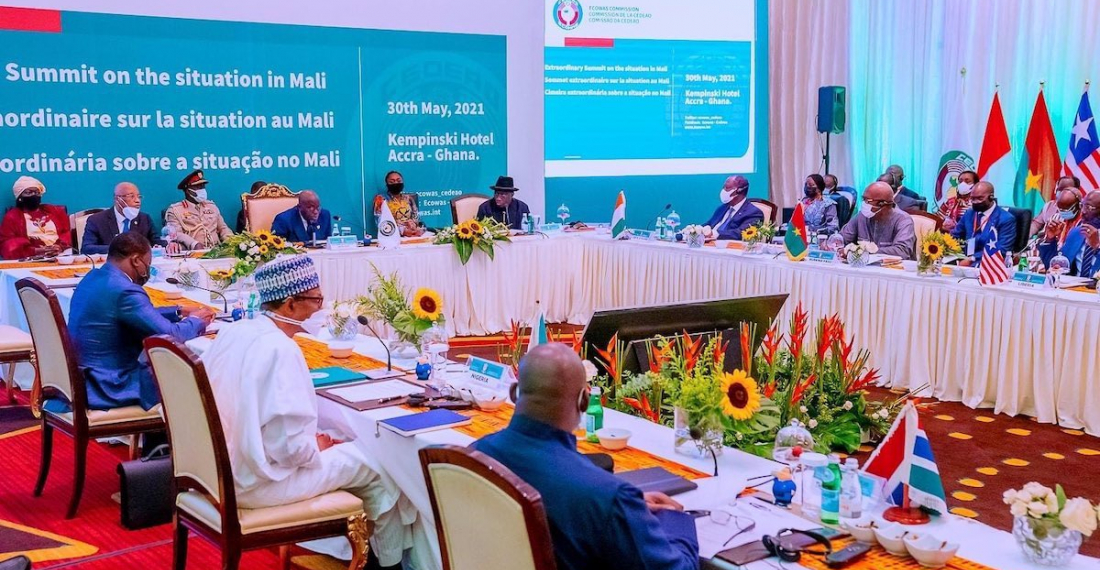Last week’s coup in Mali led by Colonel Assimi Goïta – since named transitional president of the country – has been met with severe backlash from both the regional and international communities. Whilst the European Union and France have threatened to impose sanctions on the country, the Economic Community of Western African States (ECOWAS) and the African Union (AU) have both now suspended Mali’s memberships.
ECOWAS was the first to take the decision on Sunday (May 30). "After long discussions, the heads of state and government have decided to suspend Mali from the institutions of the Community of West African States (ECOWAS)", a press release by the ten heads of state present during an extraordinary summit in Accra stated.
The heads of state called for strict adherence to the transition timetable, that had been adopted last September after the coup of 18 August, and for a civilian prime minister to be appointed with an inclusive government to continue the transition program. However, no economic sanctions have been taken and Colonel Assimi Goïta remains in his post.
Suspension from ECOWAS means that Mali, until further notice, will no longer be able to attend sessions of heads of state, councils of ministers or sessions of the parliament of the sub-regional institution.
Two days after Mali’s ECOWAS suspension, the AU followed suit and threatened Mali with sanctions were power not returned to the civilian transitional government. Moreover, according to a decision by the AU's Peace and Security Council, laid out in a statement published on Tuesday (1 June) evening, Mali is immediately barred from participating in African Union activities.
In this statement, the Union said that it was "deeply concerned about the evolving situation in Mali and its negative impact on the gains made thus far in the transition process in the country." It also called for a return to the transition process, the release of all political stakeholders – including the Bah Ndaw and Moctar Ouane, the leaders of the transitional government formed last year, who are under house arrest – and for authorities to respect the 18-month transition period original stipulated in the agreement.
Furthermore, the AU "strongly urges the Malian military to urgently and unconditionally return to the barracks, and to refrain from further interference in the political processes in Mali." Like much of the international community and civil society groups, the AU urges Mali to give the power back to the civilians to lead the transition.







